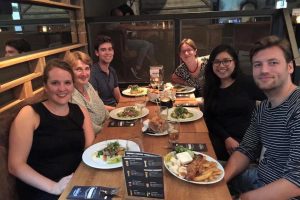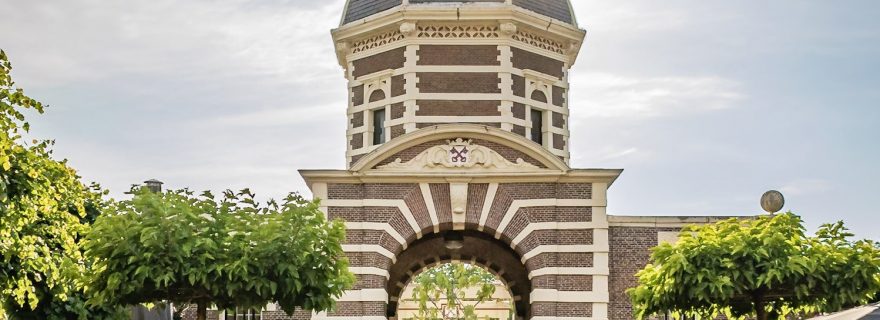Reminiscence: A note by two former interns
In 2015 and 2017, we were interns at the Centre for Science and Technology Studies (CWTS), and it was a valuable experience. Let us tell you about it, and why you may consider applying there.
Through our master’s programme MARIHE (Master in Research and Innovation in Higher Education), we were supported by the staff members at Tampere University in the selection of internship hosts, but we were also encouraged to suggest our own internship hosts around the world. Since several interesting research topics for our master’s studies were carried out in Leiden, such as innovation studies, evaluation studies, and altmetrics, we came to choose and apply at CWTS.
What did we gain from the internship? It provided the opportunity to get to know an international research environment, and its rigorous yet informal training finally led us to work in research. Since both internships took place a few years ago during our master’s studies, we are able to reflect on their effects. At that time, we were able to prepare parts of our master’s thesis at CWTS, namely on the use of altmetrics in research funding and Chinese PhDs in the Netherlands.
We were exposed to an international research environment with support from senior researchers. We were introduced to many experts in the field via our colleagues at CWTS and we attended a few workshops, conferences, and other events relevant to our research. For example, the launch event of the Leiden Manifesto for Research Metrics at Leiden University and several research seminars at CWTS.


We met talented, friendly colleagues from all around the world and made long-lasting contacts via the internship. Colleagues at CWTS come from a wide diversity of countries, and the visiting researchers that came to CWTS throughout the year were - just to name of few - from Brazil, China, Chile, France, Iran, Mexico, Spain, Sweden, and Turkey. We were introduced to several research projects, in-house databases and have had the opportunity to present and publish research, but were also given full autonomy to conduct our own master’s thesis research.
An internship at CWTS is a useful way to get exposed to research and learn from peers. Dr. Ingeborg Meijer, Dr. Inge van der Weijden, and Dr. Cathelijn Waaijer’s supervision and network were crucial to the academic success of Tung Tung as she travelled all across the Netherlands (from Maastricht to Groningen) to speak to PhD coordinators and Chinese PhD candidates. Grischa received valuable feedback on mixed-methods research from Dr. Ingeborg Meijer, and was able to learn SQL with the help of Dr. Rodrigo Costas and Dr. Zohreh Zahedi. This learning provided several new opportunities to collect, structure, and analyse research data. We both received support in carrying out literature reviews, building a research design and a theoretical framework, and on how to choose research methods. All staff members of CWTS were very approachable and supportive. Furthermore, it was possible to publish research carried out at CWTS together with supervisors.
Looking back at our internships in Leiden, we believe they have had long-lasting effects on our careers. We learned how to conduct research responsibly and gained knowledge and skills that we needed to flourish. Furthermore, the possibility to talk to colleagues at any time and to get advice on any topic made this experience even more enriching. After the internship, Grischa continues to be a visiting researcher at CWTS while being a research assistant at TIB Leibniz Information Centre for Science and Technology. Tung Tung was later hired as a researcher at CWTS for the Horizon 2020 funded NewHoRRIzon project and Open Science Monitor.
We would encourage master’s students and doctoral researchers with an interest in the research themes of CWTS to apply for an internship or a research stay in Leiden. CWTS has three research groups, namely Quantitative Science Studies, Science and Evaluation Studies, and Science, Technology and Innovation Studies and also four thematic hubs: Academic Careers, Engagement and Responsibility in Research and Innovation, Open Science, and Responsible Evaluation. Depending on the location of your university, funding for such internships or research stays is, for example, available from the German Academic Exchange Service (DAAD), Erasmus+ or other funding organisations. However, we understand that doing an internship abroad might not be an option now due to COVID-19. Both our internships began after several emails and Skype calls, so please do not hesitate to initiate contact, you might just get a reply!




0 Comments
Add a comment